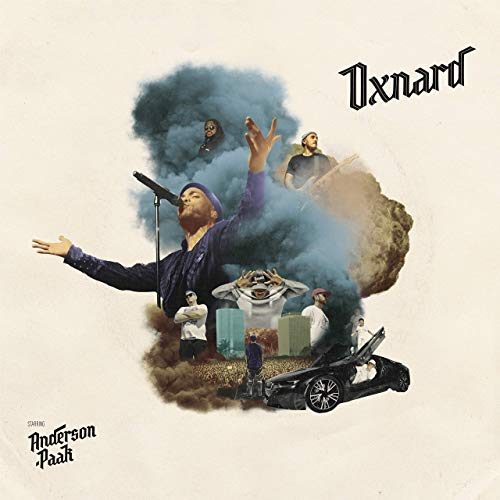Brandon Paak Anderson has come a long way since the days he was fired from his job at a pot farm and ended up homeless with a wife and a kid. He managed to survive that low point by simultaneously working as a session musician, assistant, and writing and producing his own work. In between releasing several successful solo albums since 2012 he’s also appeared on albums by Dr. Dre, the Game, A Tribe Called Quest, and Macklemore. He also released an album as NxWorries with Knxwledge. He’s been prolific, sinking most of the shots he takes. Surely his first album on Dr. Dre’s Aftermath will be yet another triumph, right?
If nothing else the features are impressive. Several of rap’s royalty make appearances, including Kendrick Lamar, Dr. Dre, Snoop Dogg, Q-Tip, and Push T. That’s not even mentioning noteworthy peers like Kadhja Bonet (who has several writing and production credits), Cocoa Sarai, BJ The Chicago Kid, Norelle, and J. Cole. None of these guests are phoning it in, either; Snoop’s verses on “Anywhere” are one of the highlights of the album. The melding of new school and old school West Coast is done to perfection on that track. Kendrick’s verses on the 80s R&B jam “Tints” fits so well with Paak’s style that it made me wish that they’d form their own super duo.
Other collaborations are less successful. Dre and Cocoa Sarai are bringing their A game to “Mansa Musa,” but the Mell/Dre beat doesn’t play to Paak’s strengths. Ditto Pusha T’s “Brother’s Keeper,” although Paak is mostly responsible for production on that one. In fact, “Oxnard” seems overly concerned with tying Anderson .Paak to current trends in hip-hop and R&B, ignoring the fact that what made his previous work so exciting was how it seemed to exist in its own lane. “Malibu” had a swing to it. Too much of “Oxnard” just plods along. Dre’s beat on “Who R U?,” for example, would be banging in the right hands, but the stuttering electro beat doesn’t allow Paak to highlight his musical ability and he’s having to adapt his singing to cold electronics.
Paak’s horndog lyrics fall flat as well. “Sweet Chick” is just embarrassing; “6 Summers” is almost a great Trump diss track, but wastes energy imagining Trump with a love child who is a pansexual woman of color. Paak has always been raunchy, but for whatever reason it didn’t work for me on this release.
None of this is to say that “Oxnard” is a bad album. It’s merely a disappointing one, at least artistically. After all, Anderson .Paak missing some shots is still Anderson .Paak. “Oxnard” is like pizza — even if it is less-than-stellar, it’s worth consuming. Also, my critical take doesn’t jibe with his sales: “Oxnard” is Paak’s highest charting album, landing at 11 on Billboard. (That’s with 40,000 equivalent album sales, and only 16,000 actual album sales. The music industry ain’t what it used to be). Clearly straying from his lane has served Paak well. In the meantime, I don’t think this is going to unseat “Malibu” on my rotation. Your mileage may vary.

